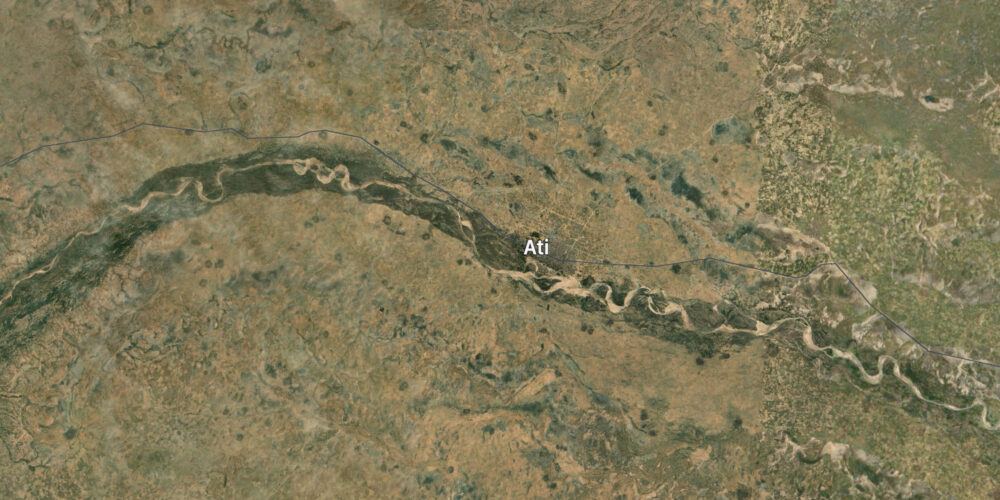Life is best lived in a state of wonder

Flying over our continent recently, I noticed an interesting place name on the map that was tracking my journey on the screen in front of my seat. Chad, it turns out, has a town called “Ati”—a sizeable place with its own airport.
What an excellent name for a habitat of humans, I thought. “Ati/Eti” in Kiswahili is an expression of surprise. I laughed to myself and thought I would love to visit a place where the inhabitants are perpetually surprised or flummoxed or nonplussed.
I sense further explanation is needed at this point. Why is being surprised a good thing? One of the worst ways of living life is to be damn sure of everything. Sure of your knowledge, sure of your opinions, sure of your decisions. That might bring a sense of comfort, but it is an illusion. The truth is rather different. None of us can be sure of anything, even of our existence as distinct entities. Life is complex and essentially unknowable. It constantly wrong-foots us.
Hence a mythical settlement that adopts the spirit of “Ati” is very appealing! I imagine it as a place where people embrace a sense of wonder as way of living. Where they are never surprised to be surprised. Where they look up at the stars in the sky and say “Wow!”—and should one of the stars not appear, or fall in a blazing arc, they say “Ati?”—because they have learned something new. Where they marvel at the complicated natures of their fellow humans, and say “Ati” whenever they get an unexpected reaction. Where they make plans for their futures, but never expect the plans to be realized as envisaged.
We humans seem to crave certainty, but we don’t seem to realize that we can’t have it. We want to assume predictability, we anchor ourselves using our set routines, we hope tomorrow will be just like today. We may get predictability for some parts of our lives—but it never lasts. A look back at your life will confirm the truth of this.
When I do the same to my life, I marvel at the many plans I had for myself in my early twenties. Decades later, almost none of them are realized—and yet I am not complaining. Setbacks and losses came, one after the other, and were painful. But new doors also opened, new directions were envisaged, and new paths travelled. I am now doing things I never thought possible back then. It’s all good.
I asked my new friend ChatGPT to say something about the uncertain life, and to say it in my style. Here’s a sentence it threw up: “Ah uncertainty—that capricious imp that insists on prancing around, throwing our neatly laid plans into the abyss of the unknown.”
Now that is one of the many surprises of my life: that an AI bot becomes my writing companion. It goes on to say: “The illusion of control is seductive. We chart our courses, set our goals, and merrily assume that we’ve tamed the wild stallion that is life. But life, with its impish grin, often has other plans. Take, for instance, the global pandemic. Who could have foreseen that our lives would be irrevocably altered? Our plans, those paper boats of dreams, were swept away in a torrential downpour of face masks and hand sanitizers.”
That’s absolutely true. As I have told many clients, COVID-19 was a huge “Ati” moment. It should have made us realize the futility of detailed, hidebound planning. Did it, though? Many have pushed the tumult out of our minds and moved on to new certainties, equally rigidly upheld.
Wonder is the antidote to uncertainty. It is the vaccine that allows us to fight the worst effects of unpredictability. Embracing wonder opens up the mind to all possibilities. It unlocks the mind to imagine and speculate, muse and ideate. Accepting wonder leads us to the idea of flexibility—to be the bamboo or palm that withstands the high winds by bending. As I write this, my AI friend is reminding me of the wise words of Bruce Lee: “Be water, my friend.”
Does the practice of “Ati” require an abandonment of discipline and planning? Not at all. It is just to hold those plans lightly, and to remember that many times the detours actually become the path. Rita McGrath, a business-school professor, asks us to embrace “discovery-driven planning”—planning that acknowledges uncertainty and works with it, by repeatedly testing the assumptions on which our forecasts are based. We should introduce frequent checkpoints in the journey, and assimilate new discoveries—about customers, technology, unintended consequences—as they are encountered.
“To be uncertain is to be uncomfortable, but to be certain is to be ridiculous.” Who said those very wise words? Ah, that too is uncertain. Some attribute them to Socrates, others to Goethe, yet others proclaim it to be a Chinese proverb. To live in the state of “Ati” is to avoid the ridiculous practice of attempting to impose the false discipline of certainty on an existence that is inherently uncertain. It is to accept the fluidity of our lives, and to do so with both joy and awe.
(Sunday Nation, 23 July 2023)

Buy Sunny Bindra's new book
The X in CX
here »
Popular Posts
- Where are you rushing to—your funeral?June 29, 2025
- The map will appear—once you start walking.July 6, 2025
- How to spot a real thinkerJune 15, 2025
- Built the app, forgot the flowJune 22, 2025















